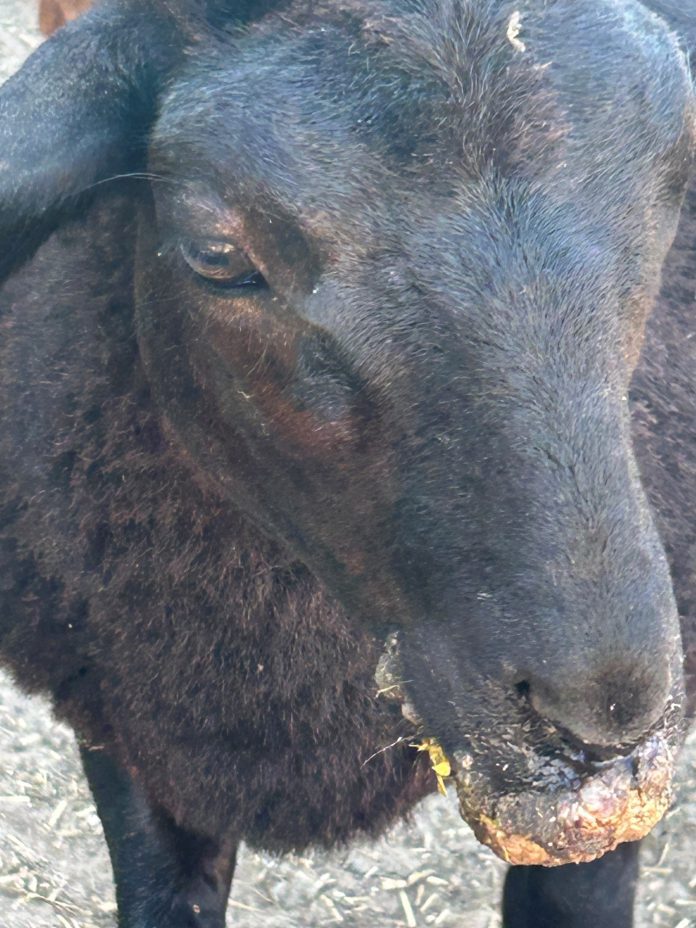Soremouth, also known as contagious ecthyma, scabby mouth or orf, was reported by a producer in Deepwater, Missouri a few weeks ago. Understanding the dangers posed by soremouth and implementing preventive measures is crucial to minimizing the risk imposed by the virus.
Soremouth is a highly contagious viral disease affecting sheep and goats. Producers should note that the disease is zoonotic, meaning it can be transmitted from animals to humans. Gloves and protective clothing should be worn when handling infected animals and producers should practice good hand hygiene.
The disease is transmitted through direct contact with infected animals or contaminated equipment or surfaces. It is commonly spread when animals are confined or are in close proximity with each other. The virus gains entrance through small abrasions in the skin of a healthy animal. A scab-like lesion is noticeable on the lips, around the mouth, nostrils, eyes, teats, udders, legs and sometimes vulvas. Animal bedding can act as a reservoir of the virus for a long period when dried scabs fall off from infected animals. In severe cases, animals often stop eating due to painful lesions around the mouth leading to weight loss.
There is no treatment for the viral infection and the scab clears off within 3 to 4 weeks in most cases. Infected animals should be isolated to prevent the spread of the virus. Iodine or chlorhexidine may be used to prevent secondary bacterial infection.
Commercial vaccines are available for sheep and goats and is recommended in herds with severe and frequent outbreaks. The vaccine is a live virus, and animals should only be vaccinated when there is an outbreak on the farm. Failure to do this will introduce the virus to the herd, if it is not already there. For vaccination protocol, please visit University of Maryland small ruminant extension webpage.















